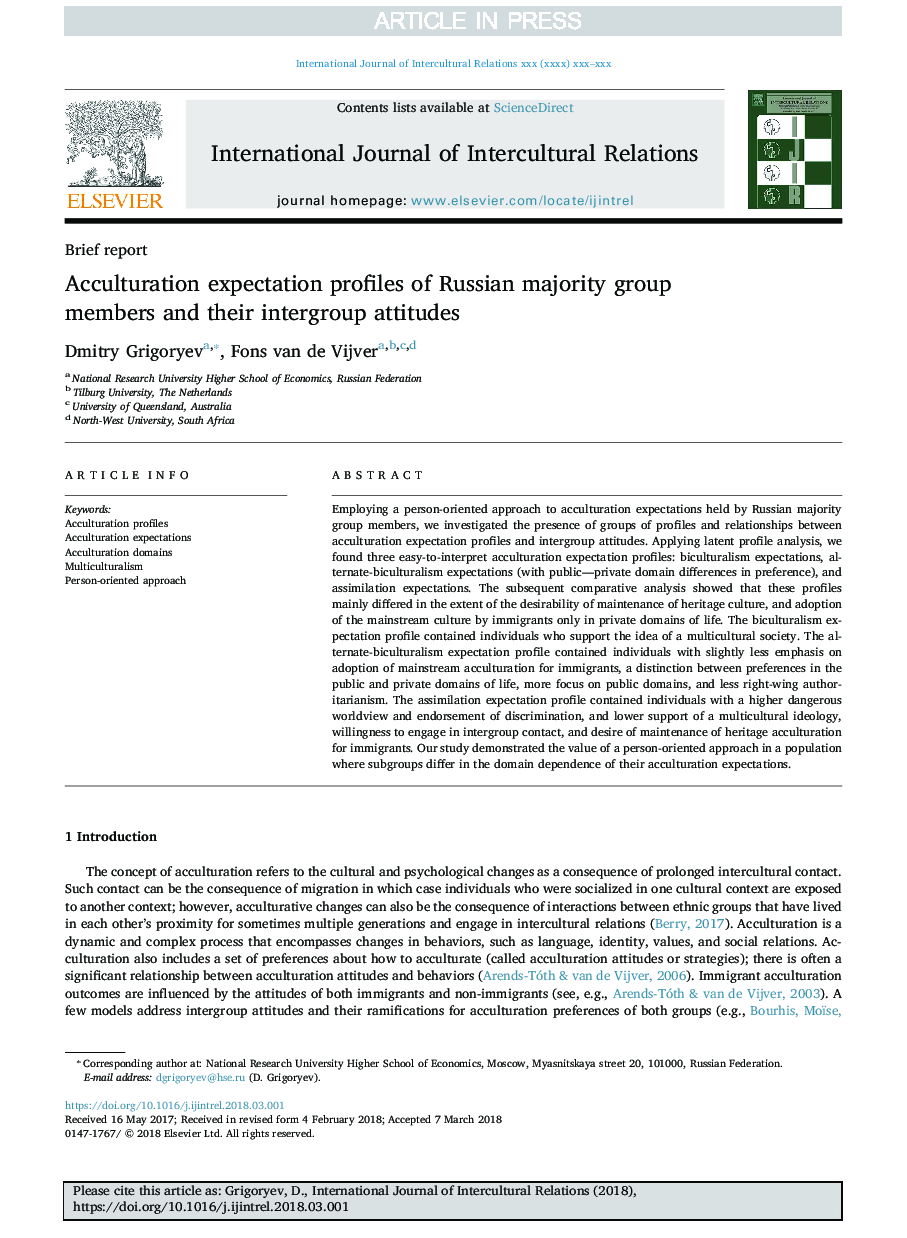| Article ID | Journal | Published Year | Pages | File Type |
|---|---|---|---|---|
| 7323631 | International Journal of Intercultural Relations | 2018 | 10 Pages |
Abstract
Employing a person-oriented approach to acculturation expectations held by Russian majority group members, we investigated the presence of groups of profiles and relationships between acculturation expectation profiles and intergroup attitudes. Applying latent profile analysis, we found three easy-to-interpret acculturation expectation profiles: biculturalism expectations, alternate-biculturalism expectations (with public-private domain differences in preference), and assimilation expectations. The subsequent comparative analysis showed that these profiles mainly differed in the extent of the desirability of maintenance of heritage culture, and adoption of the mainstream culture by immigrants only in private domains of life. The biculturalism expectation profile contained individuals who support the idea of a multicultural society. The alternate-biculturalism expectation profile contained individuals with slightly less emphasis on adoption of mainstream acculturation for immigrants, a distinction between preferences in the public and private domains of life, more focus on public domains, and less right-wing authoritarianism. The assimilation expectation profile contained individuals with a higher dangerous worldview and endorsement of discrimination, and lower support of a multicultural ideology, willingness to engage in intergroup contact, and desire of maintenance of heritage acculturation for immigrants. Our study demonstrated the value of a person-oriented approach in a population where subgroups differ in the domain dependence of their acculturation expectations.
Related Topics
Social Sciences and Humanities
Business, Management and Accounting
Business and International Management
Authors
Dmitry Grigoryev, Fons van de Vijver,
